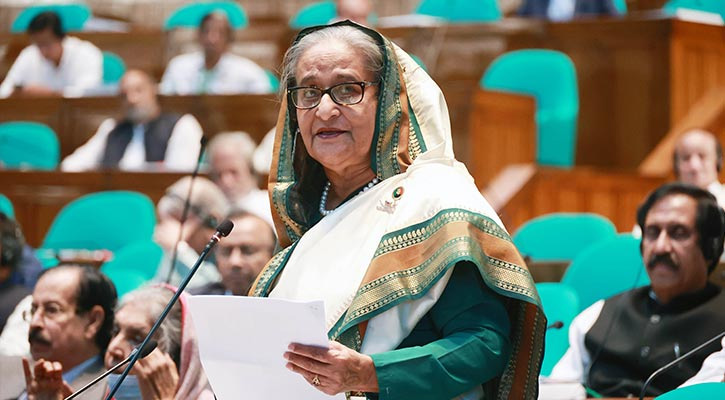Prime Minister Sheikh Hasina said that the government has taken various steps to keep the prices of daily necessities stable. He said that it has been possible to prevent the increase in daily commodities as a result of the government taking action.
The Prime Minister said these things in a written reply to a question by Syed Abu Hossain Babla, a member of the opposition Jatiya Party, in the session of the Jatiya Sangsad on Wednesday (May 31).
Speaker Dr. The session was held under the chairmanship of Shirin Sharmin Chowdhury. Wednesday’s Q&A is presented at the table.
Prime Minister Sheikh Hasina said that the current government has taken various steps to prevent the increase in the prices of daily necessities and to help the innocent people.Notable among them is to organize regular meetings under the chairmanship of the Minister or Senior Secretary of the Ministry of Commerce to keep commodity prices stable and to review the market situation with business leaders and related government officials. In these meetings, monitoring of the international market situation of daily commodities, assessment of demand, local production, stock situation, amount of import etc. are continuously reviewed and necessary instructions are given to the concerned.
He said, in order to remove barriers to import of daily necessities, Bangladesh Bank has given an opportunity to set margin on the basis of bank-client relationship by exempting from the obligation of depositing a certain amount of money (margin) at the time of opening LC.
He also said that the prices of some products (such as edible oil and sugar) are adjusted as needed to keep the prices within the purchasing power of the people. The market monitoring team formed under the leadership of the officials of the Ministry of Commerce regularly visits the various markets of Dhaka city to monitor the price, stock and supply situation of daily necessities and take immediate legal action if any unusual condition or situation is observed.
The Prime Minister said that the National Directorate of Consumer Rights Protection conducts regular market monitoring operations at all metropolitan, district and upazila levels including Dhaka. The district or upazila task force committee formed in the district and upazila under the leadership of district administrator and upazila executive officers hold monthly meetings. These task force committees take necessary legal measures to control the market including regular operation of mobile courts in district and upazila markets.
Sheikh Hasina said, in order to prevent anti-competitive activities related to conspiratorial collusion, monopoly, oligopoly status, alliances or abuse of dominant position in the market and to maintain fair competition, information collection, examination and investigation activities are taken under the relevant laws through the Bangladesh Competition Commission and if necessary, cases are taken. Related activities are taken along with filing.
He said that in order to help the poor people, among one crore low income beneficiary families with TCB family cards, certain amount of products at subsidized price (2 liters of soybean oil, 2 kg of lentils, 1 kg of sugar and 1 kg of chickpeas per family in the whole country and an additional 1 kg only in Dhaka city) Dates) The first phase of sales activities started from March 9 on the occasion of Holy Ramadan. The second phase started on April 3 and continued till April 15.
He also said that rice and flour are being regularly sold at low prices through OMS program to make food available to low-income people. In the current fiscal year 2022-23, there is a provision of 3.5 lakh metric tons of OMS, but in the revised budget, its amount has been fixed at 5.5 million tons. Apart from municipal and urban areas, OMS activities have also been expanded at the upazila level.
The Prime Minister said that out of total 2 thousand 419 centers across the country, only rice is being sold in 1 thousand 482 centers, rice and flour in 935 centers and flour only in two centers. At present, a total of 2 thousand 835 tons of rice and 1 thousand 50 tons of flour are being sold daily in the OMS program. In all these sales centers, rice is being sold at a maximum rate of 5 kg per head at the rate of 30 taka per kg and flour at a maximum rate of 5 kg per head at the rate of 24 taka per kg, 5 days a week.
This has prevented the increase in the market price of rice and flour during the holy month of Ramadan and common people are able to buy rice and flour at low prices.
He said, food assistance is being given to 50 lakh low-income families of the country by distributing 30 kg of rice per family at the rate of Tk 15 per kg in view of Karmabhavakal and Ramadan (September, October and November and March and April). As a result of taking these measures, it is possible to control the prices of daily necessities and the poor people are benefiting from it.

